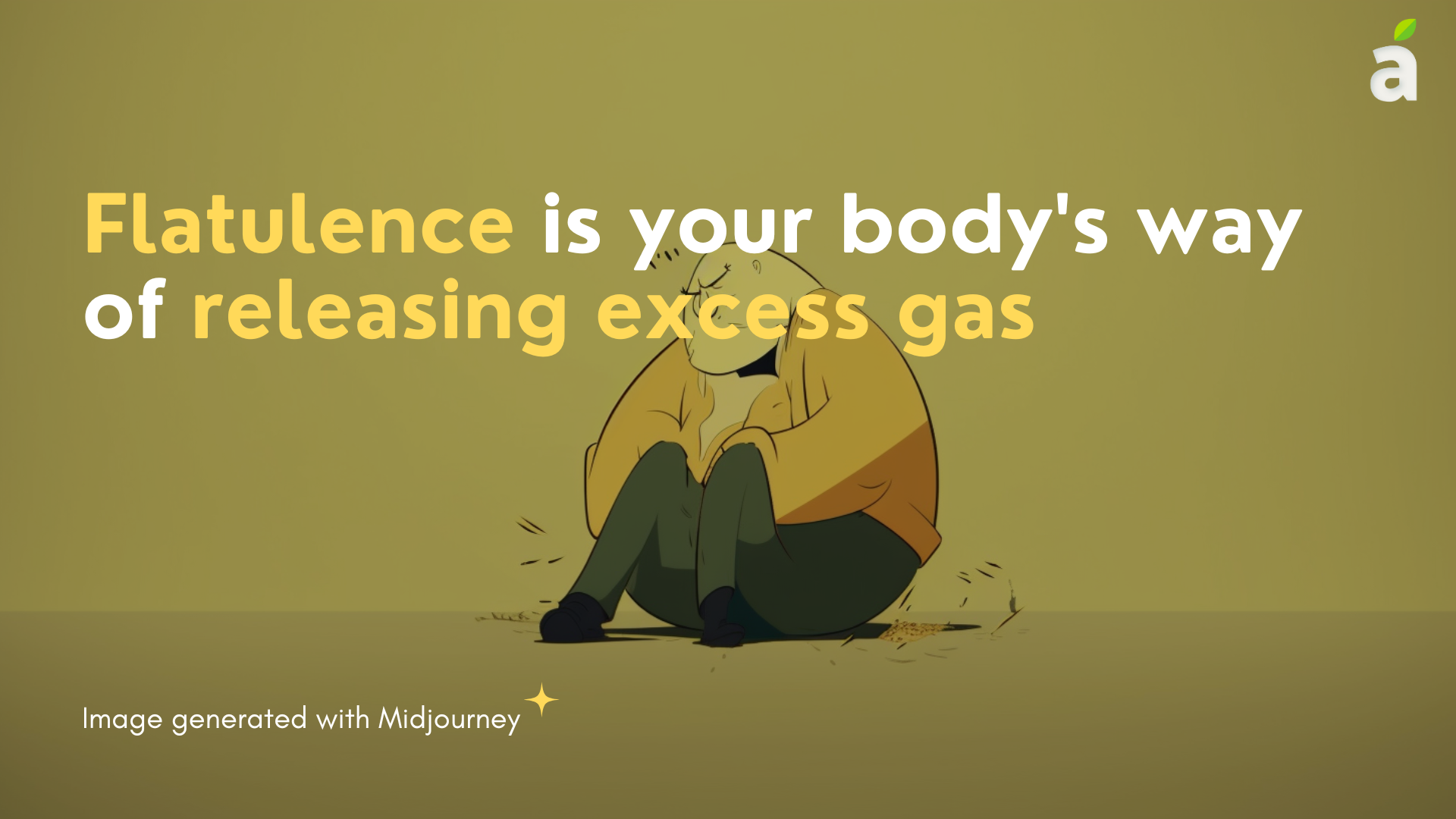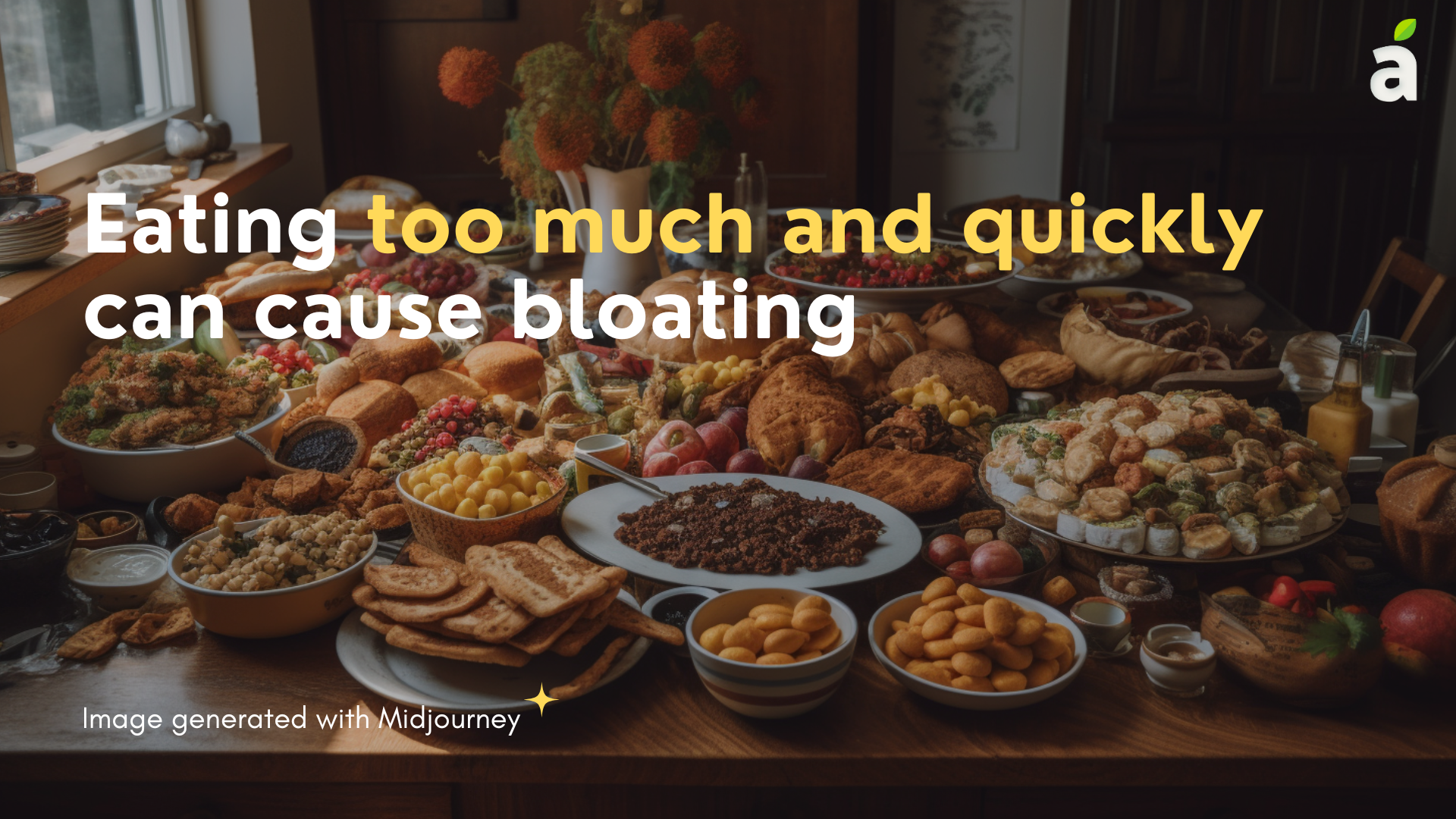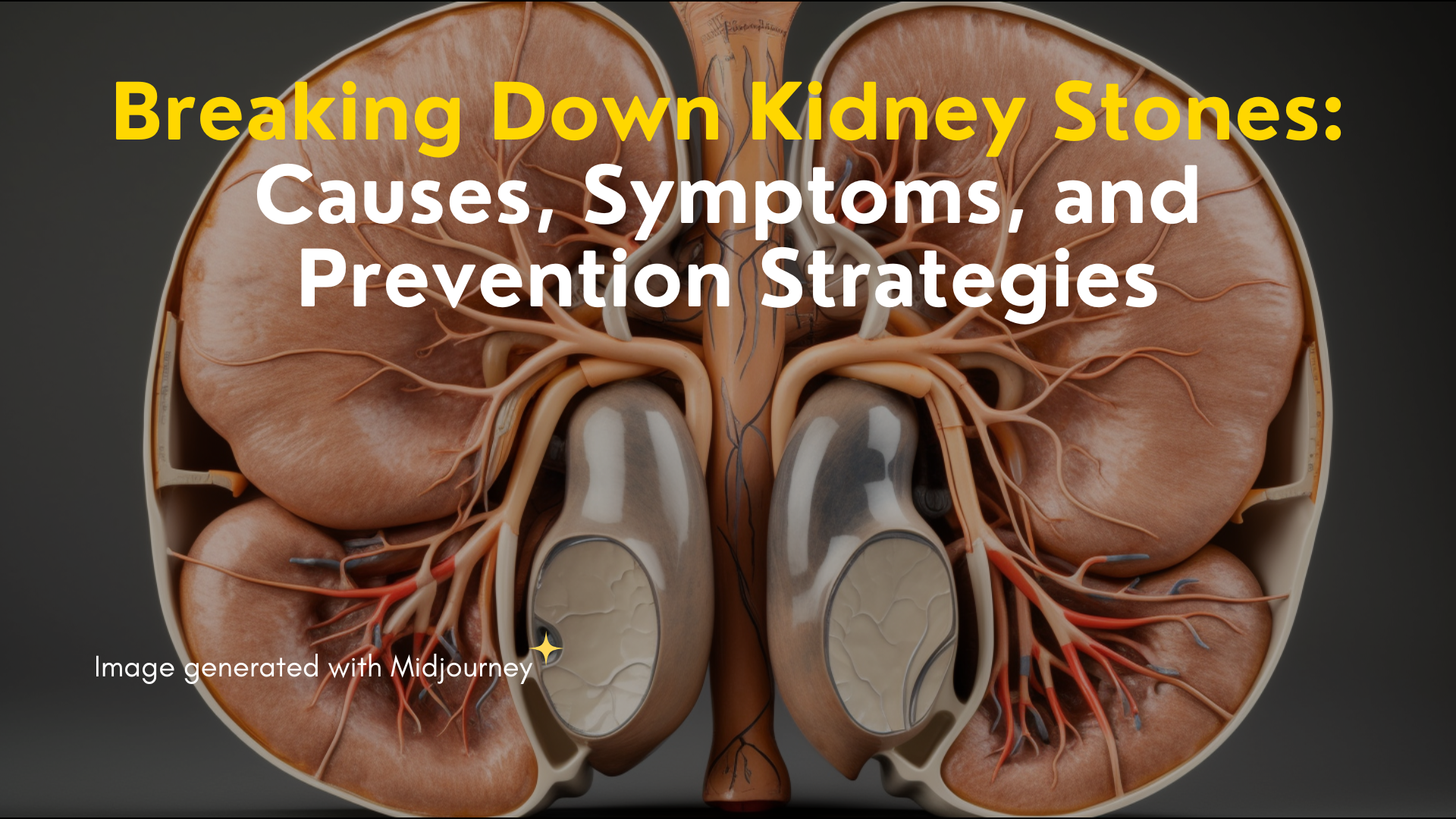Published Date January 24, 2003
Dealing with excessive bloating
By Hetvi Shah
3 min read
Last update date: January 24, 2003

Bloating is a common and unharmful issue that most people tend to have. It is prevalent in infants and slightly older children because of some types of food they're fed, how they are fed, and because they have a premature digestive system. In the past few years and now more than ever, even young adults are faced with the same problem of abdominal bloating. This is extremely common among people who tend to have a tight running schedule throughout the day and who tend to travel a lot.
Let's dismantle the bloating problem down to the roots and see what we should do to avoid feeling like we've eaten all the cheese in the world when our stomach is instead just full of air.
What leads to bloating?
Bloating is a condition where your stomach feels full because of excess gas. More often than not, people experience bloating because of their eating patterns and the small habits they've cultivated over the years.
Eating too much food too fast is one of the most common reasons for bloating. All of us gulp air into our stomachs while eating or drinking, but some of us gulp more than others, and that often leads to a bloated stomach. When you talk while eating or are eating hurriedly, you gulp more air than usual, which can lead to bloating.
The second most common reason that causes bloating in young adults is also the food itself. Eating a lot of salt and carbohydrates often makes your body retain water, which leads to a bloated stomach. If you pair a salt and carb-heavy diet with a sedentary lifestyle, it often means that the energy you eat does not get used up, and that usually gets stored in your body as glycogen. Each gram of stored glycogen gets stored with three times the water, by weight.
The third reason for a bloated belly is the increased consumption of fizzy and carbonated drinks. This is obvious e you are gulping gas along with the sugary drink. Your body tends to burp some of that gas you gulped, but when it reaches your intestine, it tends to bloat your stomach until you pass it out. Also, sugar in these fizzy drinks, like salt and carbs, tends to retain water, leading to bloating.
The fourth most common reason that leads to bloating is constipation. Constipation happens when you are irregular with your food routine or not eating the right food. The longer your stool stays in your intestine and colon, the more time bacteria have to ferment what's there, which results in bloating.
Along with these common symptoms, some other culprits that cause bloating in youth are smoking, chewing gum, eating legumes, garlic, artificial sweeteners, PMS, and stress. Stress often makes your body think that it is in a tough spot and the only two alternatives are fight or flight. This automatically slows down digestion to retain as much energy as possible from the food already in the digestive tract, which then leads to bloating.
What are some consequences of bloating?
A normal run-of-the-mill bloated stomach never bothered anyone too much. Although the sensation of having a bloated stomach can be mistaken for something completely different, it is important to identify that the sensation in your belly is actually bloating or distension.
If, after a meal, you feel full but there is no noticeable bulge in your stomach, it most likely is bloating, and following some remedies and adopting a more conscious lifestyle can immediately relieve that sensation in your stomach.
On the other hand, if you do see a noticeable bulge in your stomach, that might be distension and not bloating. Distension is nothing but a severe case of bloating where your bulged stomach does not return to its previous state.
Acid reflux, belching, and flatulence
Acid reflux is a slightly severe medical condition compared to bloating, and one of the symptoms associated with it is bloating. Acid reflux is when acid in your stomach tries to come back up the wrong way in the oesophagus.
Belching is another word for burping; it is your body's way to expel excess air or gas from your upper digestive tract. On the other hand, flatulence or farting is your body's way to expel excess air or gas from the alimentary canal. Bloating caused by excess air in the stomach often gets expelled from the digestive tract via the alimentary tract if it is in or beyond the small intestine.
How should you deal with bloating?
Like most health concerns, there are multiple ways bloating can be cured in the moment, and some others can reduce bloating in the long run. Depending on what causes bloating in your stomach, the solution also differs. However, there are still some lifestyle changes that the youth of this generation should adopt, such as:
- Eating slowly and chewing properly, which reduces the amount of air you gulp.
- Maintaining a healthy sleep routine to avoid tiredness and stress, ensuring that your digestive system works at an optimal pace, thereby reducing bloating.
- Regular exercise helps expel the accumulated gas in your digestive system.
- Consuming probiotics and magnesium aids in bowel movements, eliminating food from the digestive system, and reducing gas production.
- Lastly, reducing the consumption of salty, sugary, and carb-heavy foods will decrease water retention, thereby reducing bloating caused by water content.
References
https://www.hopkinsmedicine.org/health/wellness-and-prevention/bloating-causes-and-prevention-tips
https://www.health.harvard.edu/diseases-and-conditions/taking-the-air-out-of-bloating
https://www.webmd.com/digestive-disorders/ss/slideshow-bloating-reasons
https://www.healthline.com/health/abdominal-bloating#causes
https://www.vogue.in/content/feeling-bloated-lately-heres-what-nutritionists-want-you-to-know
https://my.clevelandclinic.org/health/symptoms/21740-bloated-stomach
https://www.healthdirect.gov.au/bloating#causes
https://rmdy.com/blogs/the-digest/what-is-bloating-and-when-is-it-a-sign-of-a-bigger-issue
https://www.self.com/story/bloating-symptoms-conditions
Keep reading
Choose Healthy With Us.
Know the real truth about your food. Stay informed and healthy, for free.

Download the App Now
Certified nutritionists trust our food recommendations. Safe to say, so can you :)













